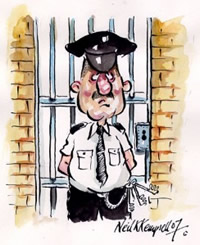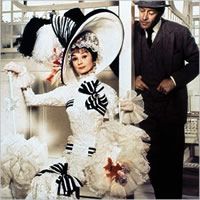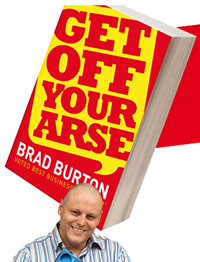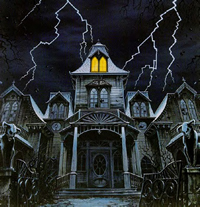Return to Index page
Dr Klaus Bung
68 Brantfell Road
Blackburn BB1-8DL

© 2010 Klaus Bung


014
Klaus Bung:
Last words: Expletive deleted
A commentary on Claire Rayner's "last words"
Agony Aunt Claire Rayner, who died on 11 Oct 2010, carefully planned and wrote down her "last words" well before she died. She told the Prime Minister not to "screw up" (fuck up) the National Health Service, and if he did, she would come back from the grave and BLOODY haunt him. She made sure there was an expletive (swear word) in her last words. Swear words, or some of them, in English are also called expletives, foul language, profanities, obscenities, four-letter words, strong language, "choice words" (= well chosen and unrepeatable, unprintable words), words not suitable for broadcasting, etc. Sometimes euphemisms are used, e.g. "effing" or " f***ing "for "fucking", etc. When things go wrong in an organisation (army, government, office) people say that everything is messed up, fucked up, screwed up, and when this happens most of the time, you say SNAFU (systems normal, all fucked up). "not bloody likely" was shocking in 1916 (in Shaw's play Pygmalion), but in 1964, in the musical "My Fair Lady", "bloody" was no longer shocking enough, and the shocking exclamation in the musical was "Move your bloody arse!". Learn also about euphemisms and unparliamentary language. Read more ...
2010-10-12 Last words: Expletive deleted
A commentary on Claire Rayner's last words: R.I.P
Famous last words
 Agony Aunt Claire Rayner died on 11 Oct 2010. The BBC reported: Agony Aunt Claire Rayner died on 11 Oct 2010. The BBC reported:
>She told her relatives she wanted her last words to be: "Tell David Cameron that if he screws up my beloved NHS I'll come back and bloody haunt him."<
This is an interesting story and requires several explanations.
Agony Aunt
Claire Rayner was an "Agony Aunt", i.e. a journalist who gave advice to readers of a newspaper in a column that appeared regularly. People would send her letters with their personal problems (agony = pain, suffering) and she would answer some of these in her column, like a mother or aunt would advise her children or nieces and nephews.
Claire Rayner knew there was something special about "last words", she therefore told her relatives what her last words should be.
Probably these words were NOT her actual last words. Therefore her use of the term "last words" was slightly facetious (= jocular). In this case it really meant, "The most important thing I want to say to the world before I die ".
So she calls it "last words", even though they are NOT her LAST words.
Screw
You all know what a "screw" is.

The word also has various slang meanings:
"a screw" is a slang word for prison officer

"to screw" is a slightly less offensive way for saying "to fuck" (e.g. "The couple made their way into the bushes in order to screw.")
If somebody has "screwed you", he has cheated you.
"to screw it up" = "to fuck it up" = "to mess it up" means to make a procedure go wrong (often unintentionally, e.g. out of incompetence). The new Conservative-Liberal-Democrat government will often say something like: "We have inherited a financial mess from the Labour Government. They screwed up the British economy."
Unparliamentary language
The word "screw" is inoffensive enough to be used in Parliament in this sense. In Parliament you are not allowed to use offensive language. Such language is called "unparliamentary language". If you use unparliamentary language in Parliament, e.g. if you call another Member of Parliament a "liar" or say that the Member is "lying", you have used unparliamentary language and will first be reprimanded (= told off, criticised) by the Speaker and, if you do not apologise, you will be punished.
As a result, even outside parliament, if people use foul offensive language ("strong language"), you could describe this by saying: "They used unparliamentary language".
Imagine two people, semi-drunk, in a pub, fighting and shouting obscenities at each other. "You bloody fucking bastard! You stupid fucking cunt! You sonofabitch!" (and the like).
If this drunken brawl were reported in the local newspaper, the report would not quote the actual words but might say (with a wry smile): "They were not very polite, they used unparliamentary language," a good example of English understatement.
Instead of saying that somebody is lying, you can say "He was economical with the truth". Something that is "economical" is usually something that costs less, for which you have to spend less money. If you are economical with the truth, you give as little truth away as you possibly can.
When you have to give evidence on oath in court you have to swear that you will speak "the truth, the whole truth, and nothing but the truth" (nothing but the truth = nothing except the truth = only the truth). This is a good formula, covers every attempt of not telling the truth, and does not allow a witness to be economical with the truth.
Google evidence:
"unparliamentary language" produced 55,000 hits.
"economical with the truth" produced 2.3 million hits.
Try this for yourself and see what you can find.
Messing up the election
"He messed up" (fucked up, screwed up) the election means "He made a number of mistakes which caused the election to go wrong, to be invalid, to end in violence". Similarly you can say "He screwed up the wedding reception", etc.
So Claire Rayner told the new Prime Minister David Cameron not to interfere with the NHS (National Health Service) by making changes that would make it less efficient, not to cause chaos in the NHS, not to damage the NHS.
Systems normal, all fucked up (SNAFU)
 If you work a lot with computers, you will know that there is no end of trouble. Everyday something else is wrong, a virus causes chaos, a new program refuses to work, the emails are being blocked, etc. If you want to make fun of this fact, you can say "Everything is SNAFU". SNAFU is military slang and means "systems normal, all fucked up", i.e. "As usual, nothing is working". If you work a lot with computers, you will know that there is no end of trouble. Everyday something else is wrong, a virus causes chaos, a new program refuses to work, the emails are being blocked, etc. If you want to make fun of this fact, you can say "Everything is SNAFU". SNAFU is military slang and means "systems normal, all fucked up", i.e. "As usual, nothing is working".
The opposite SHOULD, of course, be the case. It should be normal that things work and run smoothly, and it should be an exception that they fail, that there is trouble.
SNAFU asserts (with gross exaggeration) that it is the other way round. It is normal that nothing works (SNAFU), and only exceptionally things do work.
SNAFU is also said with a certain amount of contentment, which is meant to be funny because it is so absurd. When you are saying "SNAFU", you are really saying "Don't worry, everything is fine here, everything is normal, everything is as it always is, everything is as it should be, namely FUCKED UP." You are saying, by implication: "If things were NOT fucked up, if things did work properly, I would be worried, things would be wrong."
Dearly belovëd
Pronunciation of "beloved": This word has three syllables, with stress on the second syllable: be-lo-ved. By contrast "loved" has only one syllable.
Not bloody likely
"bloody" is a popular swear word, a curse. It is today less objectionable than it used to be, but before you swear or use slang, consider whether the people in whose company you are use these words or not.
 In Shaw's play "Pygmalion", a working class girl, Eliza Doolittle, is trained by a phonetics professor in high class English pronunciation. He wants to pass her off as a lady. When invited to a society party, initially everybody is convinced that she IS a lady, since her high-class accent is perfect. But then she replies to a question: "Not bloody likely", when "Not likely", or "Probably not" would have done. Everybody is shocked and astonished at this profanity. No lady would ever use such a vulgar expression. In Shaw's play "Pygmalion", a working class girl, Eliza Doolittle, is trained by a phonetics professor in high class English pronunciation. He wants to pass her off as a lady. When invited to a society party, initially everybody is convinced that she IS a lady, since her high-class accent is perfect. But then she replies to a question: "Not bloody likely", when "Not likely", or "Probably not" would have done. Everybody is shocked and astonished at this profanity. No lady would ever use such a vulgar expression.
In 1964 the play Pygmalion was made into a very successful musical: "My Fair Lady". By then sensitivities in England had changed so much, and the use of the word "bloody" had spread so widely in different layers of society, that the "Not bloody likely" incident in Pygmalian had to be replaced by something stronger. Otherwise today's audiences would no longer understand why anybody should be shocked by the word "bloody".
Therefore, in the musical, Eliza goes to the horse races with her high class friends. During she race she gets very excited and starts encouraging the horse on which she has put some money. Go faster, go faster, she shouts (or words to that effect), culminating in "MOVE YOUR BLOODY ARSE", which shocks everybody, and even today's audiences would find that shocking.
The shocking word is no longer "bloody" but "arse", which is a slang term (four-letter word :-) ) for "anus". In British English what one says is "arse" (*** if *** one says it).
Other expressions, less crude, to refer to this part of the human anatomy are: your bum ("Get off your bum" = Get up and DO something), your posterior, your backside. "Bum" is colloquial, quite popular and inoffensive (and not as bombastic as "posterior" and not as long as "backside"). But, of course, you do not say "bum" when talking to the Queen. You do not use colloquial language when talking to high dignitaries.
Flies on American asses
The Americans are more sensitive and use a euphemism, "ass" (Move your bloody ass; He sits on his ass all day long; etc). "Ass" really is the word for "donkey", but the Americans use it when they want to say "arse", but "arse" is too vulgar for them.
The Americans may be slightly more prudish than the British in their choice of word ("arse" / "ass"), but they are unrivalled in the way in which they USE these reluctantly chosen words. Jack Kerouac, in his novel "On the road" (a classic of the beat/beatnik literature) quotes an American lorry driver ("truck driver" in American English). The lorry driver was complaining about the police and the unfair speed limits they imposed in many towns. Drivers find it difficult to abide by these speed limits, and the police then come and fine them (impose penalties). But this lorry driver says that he has got tricks, ways of getting around the unfair speeding laws in every town, ways of outsmarting the police (= being smarter than the police). The police can try to irritate and annoy me, he says, but they do not succeed because I know how to defend myself. This is how the lorry driver describes the situation:
"Them goddam cops can't put no flies on MY ass."
There is so much grammar of colloquial English in that sentence, that I will transform it into standard (but boring) English in several stages.
Them goddam cops can't put no flies on MY ass.
Those goddam cops can't put any flies on my arse.
Those damned coppers can't put any flies on my arse.
Those damned policemen can't put any flies on my arse.
- goddam = damned by God (destined for an eternity in hell)
- copper = cop: slang for "policeman"
Flies like faeces (shit) and will be extremely irritating if they walk on somebody's arse. So if the police are harrassing a lorry driver, it is the same as putting flies on the driver's arse. Jack Kerouac's lorry driver will not allow the police to do that.
Get off your bum and pull your finger out
 "Get of your bum" then means "Do not remain seated, get up and do something". The same message can be given, in more "colourful language" (a euphemism for language containing a lot of swearing), by saying "Get off your arse" (or very politely and primly "Get off your backside"). If you don't believe me that people say, or even print, this, here is the evidence, from the cover and advertisement of a best-selling business book. Read the book and improve your English even further. "Get of your bum" then means "Do not remain seated, get up and do something". The same message can be given, in more "colourful language" (a euphemism for language containing a lot of swearing), by saying "Get off your arse" (or very politely and primly "Get off your backside"). If you don't believe me that people say, or even print, this, here is the evidence, from the cover and advertisement of a best-selling business book. Read the book and improve your English even further.
Brad Burton: "Get off your arse and do something. Anything. Today"
The book teaches networking skills in business, the website has further ideas of what you can do to promote yourself, your career or your business, and on the website there is a link on which you can click and listen, free of charge, to the first two chapters of the book. This is an opportunity to listen to, and practise understanding, spoken English, repeatedly, until this link is removed from the website. So take advantage of it now. Get off your bum and listen and improve your English language skills. LOL
Google
- "get off your backside" gave me *** exactly *** 111,000 hits.
- "get off your arse" gave me 31,000 hits.
- "get off your bum" gave me 16,000 hits.
In a similar vein and using similarly colourful language, the Duke of Edinburgh, husband of The Queen, who always had a reputation of "calling a spade a spade" and "not pulling any punches", declared in public, several decades ago when he was much younger, that British business people should "pull their finger out".
This expression is impossible to explain without going into rather embarrassing anatomical details. It means exactly the same as "get off your bum", i.e. do something instead of sitting around and waiting. Nobody ever states where the finger is that has to be pulled out. The expression is always used in this abbreviated form. The finger is, metaphorically speaking (symbolically speaking), in the person's "arsehole", or he is "scratching his arse", i.e. doing nothing, instead of developing his business or doing his duty.
Variants on "pull your finger out" are "get your finger out" or "take your finger out".
Google yields the following hits:
- "pull your finger out": 78,000 hits. Check this for yourself and follow it up. You will find some good examples and explanations.
- "get your finger out": 60,000 hits
- "take your finger out": 24,000 hits
The Google examples given do, of course, not always use the expression in the sense explained here.
Talk of the devil
An English proverb says "Talk of the devil, and he will appear" (or something like it). As is customary with English proverbs, people will only quote part of it, e.g. "Talk of the devil". Their English-speaking listeners will immediately think of the complete proverb and of its significance and know what is meant.
Quoting a proverb in full usually sounds very cumbersome (heavy-handed, boring, in-elegant).
A few weeks after I had published this article, spoken about "get off your arse" and "get off your backsite", etc, and after I had reminded readers that the Duke of Edinburgh, husband of the Queen, sometimes uses drastic language (colourful language), e.g. "pull your finger out", the Duke's and the Queen's son, Prince Andrew (born in 1960), caused excitement in the media for complaining that the people working in the Ministry of Defence were sitting "on their fat backsides". What he meant was that they were slow and idle (lazy) and that they should get off their fat backsides. He was comparatively polite in saying "backside". He could have said "arse", which means the same but is considerably more crude.
Read more about the Prince Andrew story, and an even more outrageous example from Germany here.
Euphemisms
Another related euphemism is "sugar" when people want to say, but dare not say, "shit". Both "sugar" and "shit" start with the sound "sh".
Euphemisms for "bloody" are "bleeding" and "blooming". They all start with "bl". That's why.
Examples:
- Angry husband: "Where are my bleeding socks?"
- In the office: "The blooming printer has broken down again."
In all these cases, "fucking", "effing", "bloody", "damned", "accursëd" (three syllables) could have been used instead of "bleeding" or "blooming", but not all would be socially acceptable in a given situation.
Even though "bloody" is less shocking today than it was in 1916, it is still a slang word and to be used with care. Use it only if you are sure that your companions would also use it.
You would not normally say "bloody" when meeting the Pope, the Bishop, the Prime Minister, your Imam or Ayatollah, or in a church or a mosque. These dignitaries might swear only when they think they are alone and not being recorded and broadcast (even though, alas, God is always there and monitors every thought of theirs, to say nothing of their foul language, if any).
But it does happen occasionally that a politician is caught off guard, swears without knowing that the microphone is still switched on and that his curses are being broadcast. Ex-Prime Minister Gordon Brown had such an experience.
"What bloody man is that?"
"Bloody" is, of course, not always a swear word. It can be used in its literal sense, "covered with blood".
If somebody punches you in the face, he can give you a "bloody nose". If you cut your finger while chopping onions, your finger will start bleeding, and then you will really have a bloody finger (because of your "bloody knife" = your fucking knife).
At the beginning of Shakespeare's play "Macbeth", there is a battle. King Duncan meets "a bleeding sergeant" and asks "What bloody man is that?" King Duncan is not swearing. He sees real blood.
This line is sometimes quoted with a smile because today people are aware of its ambiguity (= two meanings: swear word versus literal meaning). At first sight it sounds like a case of swearing, but in fact in Macbeth "bloody" is meant literally.
A bloody nose
The expression "a bloody nose" also has too meanings. It can mean "a nose covered with blood because of an accident" or it can mean someone is in trouble.
For example, when Saddam Hussein invaded Kuwait, he triggered the First Gulf War. He was defeated by the coalition forces. This defeat can be described by saying: "The coalition forces gave him a bloody nose".
The same can be said of any unsuccessful acts of aggression, e.g. when King Xerxes of Persia attacked the Greeks and was soundly defeated in the Battle of Salamis, the Greeks gave Xerxes a bloody nose.
The Greeks, in turn, received a bloody nose, when they tried to enslave the colony of Syrakuse during the Sicilian expedition.
The expression "a bloody nose" is used when the loser deserves to lose (deserves his bloody nose) and not when he should have won.
In politics, if a government starts a battle with the Trades Unions and the Trade Unions win, the Trades Unions have given the government a bloody nose.
Somebody might warn you: "Do not criticise Mr Smith. He is too powerful for you. You might receive a bloody nose."
Expletive deleted
Former President Nixon used the word "fucking" continuously (several times in every sentence) when talking to his advisers, and unfortunately he had made arrangements for all conversations in his office to be recorded on tape.
During the Watergate Affair he was forced to release these tapes and they were published in print. Since the word "fucking" was considered unacceptable and not printable, in this book the editors replaced the word "fucking" by "expletive deleted". "Expletive deleted" therefore became a popular and often jocular expression in the English language.
An "expletive" is a swear word. Another expression for "expletive" is "profanity". Example: "President Nixon's speech was peppered with profanities". Or: "President Nixon often used foul language" (= dirty language).
Expletives are often used, by those people who use them, to fill up a sentence (Latin: ex-plere = to fill the gaps). They add nothing to the meaning of a sentence, except emotion. If you remove an expletive from the sentence, the meaning of the sentence remains unchanged.
Claire Rayner said: "I will come back and bloody haunt him". Without the "bloody", her sentence means exactly the same: "I will come back and haunt him." Claire Rayner was a feisty woman (= robust woman, strong in character and opinion), that's why she expressed herself in this way.
You could rewrite her last words as:
"I will come back and (expletive deleted) haunt him."
Somebody less lady-like than Claire Rayner might have said (expletive not deleted): "I will come back and fucking haunt him," which is grammatically quite correct, but socially less acceptable than "bloody haunt him" or "haunt him". But perhaps that's what she did say, and her relatives "expurgated" her last words.
An expurgated (= cleaned up) edition of a book is one from which all offensive material has been removed. There are such editions in existence of D H Lawrence's "Lady Chatterley's Lover", and many other classics, usually produced in the past when people were more sensitive about these things than we are today. Study not only the novel "Lady Chatterley's Lover" but also its history if you want to find out more about expletives, their use in literature, and an attempt to reclaim an expletive for ordinary language, i.e. to make it socially acceptable.
Google's testimony:
I googled "expletive deleted" and found 117,000 hits. Try for yourself and see what you find.
I googled < "expletive deleted", Nixon > and had 6,000 hits
Don't fucking swear
"Don't fucking swear" means the same as "Don't swear", it is just expressed with more vigour. You can even insert "fucking" into the middle of a word if you are angry (and if the Bishop or the Chief Rabbi are not present). "This is im-fucking-possible" means "This is impossible" (absoluuuuuutely impossible), spoken by an angry or frustrated person. A parent twittered: "Imfuckingpossible to shop for my kids online when they keep coming in & out of the house while I'm looking at stuff."
I heard someone speaking angrily about a friend's visit to the Pakistani city of Rawalpindi. This is what he said: "...and then this stupid fool went to Rawalfuckingpindi".
Certain people often use the word "fucking" during radio interviews (some people do, others never do).
The BBC, before broadcasting such interviews, replaces the word "fucking" by a beep (a brief high-pitched whistle). That is another way of having "expletive deleted". Newspapers sometimes replace the word "fucking" by " ****ing ".
If, for some reason, the BBC does not cover "fucking" with a beep, or if there are too many swearwords (like "bloody") in a radio play, there are always sensitive and very respectable people who will write to the BBC to complain about excessive swearing and foul language.
In conversation, when you want to say "fucking" but feel you must not say it because the people you are with might find it offensive, you might say "effing" (from "f***ing"). "Effing" is a euphemism for "fucking". Wife to husband: "I am too tired today. You can take the effing children to school."
Some years ago, a cruise liner had anchored just off Australia at Christmas time, and the local Bishop had agreed to come aboard to celebrate Midnight Mass. He came alongside the liner in a small boat, was fitted with a harness, and then a crane was supposed to lift him on deck. A rope slipped, and the bishop, harness and all, landed in the water. The captain then was heared bellowing: "Holy shit! Get the fucking bishop out of the water!". We do not know whether the bishop also uttered a profanity (a swear word) when experiencing this unexpected and redundant baptism.
Haunted by ghosts
 Claire Rayner threatened to haunt the Prime Minister. If a dead person's spirit (ghost) appears to living people and frighens them, we say that "The ghost haunts a person." A house in which ghosts can be seen, heard or felt is called "a haunted house". Claire Rayner threatened to haunt the Prime Minister. If a dead person's spirit (ghost) appears to living people and frighens them, we say that "The ghost haunts a person." A house in which ghosts can be seen, heard or felt is called "a haunted house".
To round off these long explanations, let me repeat, and end with, Claire Rayners last words. She was a robust (feisty) person and she expressed herself in a robust way:
"Tell David Cameron that if he screws up my beloved NHS I'll come back and bloody haunt him."

|
